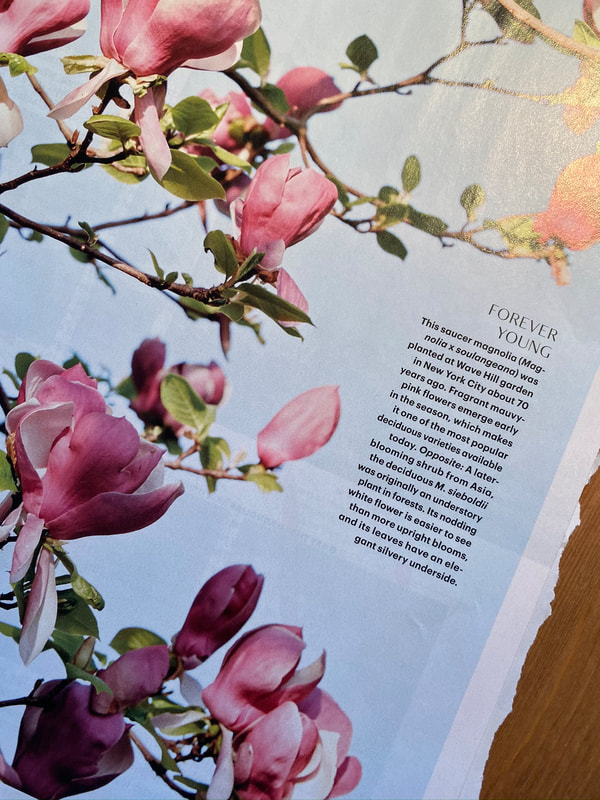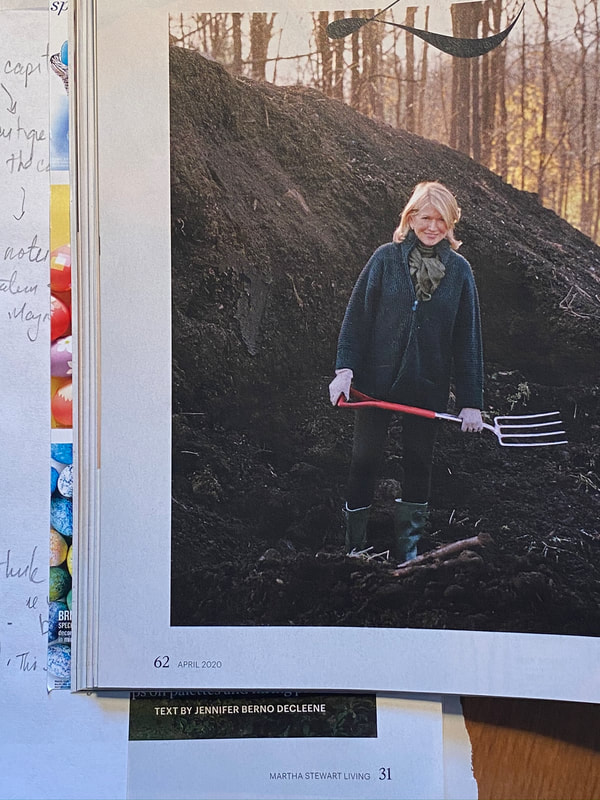|
4/18/2020 Some Notes On Capitalism and MagnoliasThe past month or so, my morning reading time has been spent primarily with two books I am now finished with. "Home: A Short History of an Idea" by Witold Rybczynski told a history of the development of home architecture, technologies, and furniture alongside the development of ideas such as intimacy and comfort. After finishing this I finally read "The Granite Garden" by Anne Whiston Spirn who's book I had seen cited more times than I can count. She writes a history of the city, its conditions, and how "landscapes" have been transformed and created to solve the health problems city wastes create. The book is written in the early 1980's and I read it with a certain nostalgia looking back on the foundations of contemporary landscape architectural thinking that were new ideas at that time. It was an interest to me in the moment as I have been trying to articulate ideas about the "Landscape as Infrastructure" of the city and why some landscape work is more essential (or of greater value) than others during this current COVID-19 "NY Pause" where the Governor has asked us to stay home and minimize public contact with others.
This morning I moved on and decided to spend a morning or two attacking the magazines I subscribe to as visual research - "Gardens Illustrated," "Martha Stewart Living," and "DWELL." I came across the above image of Martha standing in a giant pile of compost that is obviously much larger than something any one person managed with a small pitchfork. I love compost. My points of connection to it may be my own home garden, the recycling of Buffalo Horticulture garden waste, consulting homeowners and designing them compost spaces and operations, as well as - most important to me - the large scale production of compost. The small scale, home garden models of composting are a real delight, however they are something a person takes on as a life choice, "I will live this way." Home composting is not part of the "I want a low maintenance garden." It takes work and is only for some. On the other side is large scale compost production. I love to use compost as a soil amendment but my excitement is tempered drastically because around these parts large scale composting isn't produced with the imagination of a horticulturist but by those trying to process waste. I end up stubbornly rejecting the material because it is just another commodity product for sale, not a material embodying a gardener's intelligence. At the same time, large scale compost production - as waste management - is something that came to be in this era just before Spirn's book (Although, Milorganite claims its history goes back to 1925). She spoke of a project started in the early 70's (I believe) in Washington DC mixing sewage sludge with woodchips to be used as a soil amendment on the lawns of the National Mall, a product developed and called COM-PRO. Sewage sludge is something every municipality needs to get rid of. The City of Lockport used its sludge at one point to create a compost. I know the town of Amherst made a pelletized fertilizer from their sludge once upon a time. Amherst built a compost facility in the late 80s or early 90s and has since sold it. Bulk compost from these facilities once cost half of what topsoil cost. Now compost is 25 percent more than topsoil. For the most part it is just sold as high end topsoil. Instead of "Shredded Topsoil" now you pay five to ten dollars more and get "Organic Topsoil Supreme." There is no horticultural intelligence to it, it is just an up-sell. Com-PRO was shut down in 1999. It seems we are moving away from large scale public composting. I think it is important for us to recognize this is our direction. Its not good. Good waste management is part of a healthy city. This may all seem contradictory. But that's fine. I wrote in my notes during this morning's reading "Capitalist Compost." Of course you can't use the word "capitalism" because then your voice sounds like some radical everyone is ready to roll their eyes at. What I am trying to point to in this is just the methods and process we use to produce things. Generally speaking, we eliminate nuance, certain skills, and material intelligences, so that we can standardize a production system. It makes certain productions easier, more efficient. "Capitalist production" generally makes a lot of good things happen. My general feelings: Capitalism isn't a problem, capitalists are. I think as Buffalo Horticulture, we deliver 'horticulture' and not 'landscaping' because horticulture is the production I am organizing and my study of economic, production, and cooperative processes (or capitalism, if you prefer) is part of what allows us to do what we do. What capitalism is failing to do is make a compost I want to use. A few pages later in Martha Stewart there was a nice layout on magnolias and their different forms. Their images and examples came from Wave Hill (a garden in the Bronx) and the first example given is "This Saucer Magnolia (they didn't capitalize the plant name in their text) was planted...in New York City about 70 years ago." This converged for me in this image, that "someone's grandparent planted this" but in the spirit of our moment right now where we are only tending to what is essential. I just put a design together early this week where I stated my intention to move an existing, small, Star Magnolia from a foundation planting out into an open space in the front lawn. There it will spend years developing, its maturity reached well after the life of the home's current tenant, but still, between now and then, each season - although people don't assign such a weight to these things as I do - at just about this time of year in the middle of spring, the Magnolia will be one of the first trees to flower in the city's landscape. The event might pass by one hundred times without anyone giving it too much of a thought, but it will always be noticed, maybe even spoken of once in a while; "Oh. Look. The Magnolia is flowering." It will always have a romantic feeling that time when it blooms and as the flowers fade and fall, marking the close of this years window, this to will be noticed. But none of this will receive weight. Most certainly, when there is a late frost, and the flowers fall to soon or never bloom at all, it will be noticed but with no measure of what has been lost. I have been trying to find way of communicating this idea that the "Landscape is Infrastructure." Right now the only work we can do is "essential services," a very ambiguous concept that has been clarified by saying "no cosmetic work." Magnolias are "cosmetic work." This is my morning coffee and the 15 minutes between page 62 and 97. ***The use of the word "capitalism" is not endorsed by Buffalo Horticulture and only reflects the language of the author. Comments are closed.
|
AuthorFrom Matthew Dore, the "I" voice of Buffalo Horticulture and "The Buff Hort Project." Archives
April 2022
Categories |
Telephone(716)628.3555
|
|



 RSS Feed
RSS Feed